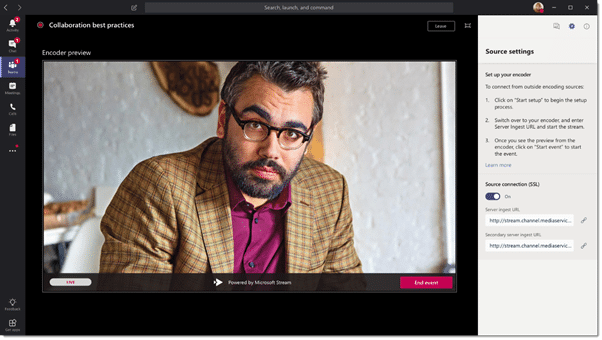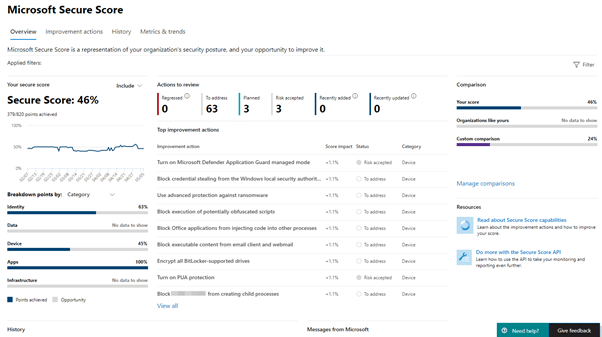Understanding Microsoft Teams Licensing Add-ons
With many organisations now working virtually, Microsoft Teams has become the hub for productivity and collaboration for organisations across the world. This is demonstrated by the huge increase in usage from 25 million daily active users at the beginning of 2020 to 115 million by the end of the year. Our licensing expert explains how Teams Licensing add-ons can take productivity and collaboration to a new level.
Empower Teams with Licensing Add-ons
With organisations now reliant on Teams, we’re seeing more and more customers starting to push this collaboration app to its full capacity. Teams undoubtedly has some great out of the box functionality based on the underlying technologies of Exchange Online, SharePoint Online, and Skype for Business (now retired). But to drive up productivity even further, we’re now helping many customers explore additional features using Microsoft Teams Add On Licences. These include Data Loss Prevention, Information Protection, and Telephony to name a few.
This article will detail just some of the key Microsoft Teams add-ons and features that can be licensed on top of the basic Teams functionality.
I’ll run through what licences are required and the functionality that these bring. These will roughly be split across Telephony, Security, Compliance, Power Platform, as well as future road mapped features.
This isn’t an exhaustive list – given that Microsoft released Viva recently I’m sure there will be more add on announcements in the pipeline – but I’ve highlighted just the most common add-ons and components we are discussing with customers.
From Legacy to Evergreen:Read our Modern Workplace Case Study >>
1. Teams Live Events
I’ll begin with a quick note on Teams live events. Whilst this isn’t a feature that requires an add-on, it can only be used by users who have an Enterprise O365 licence (E1, E3, E5) or Educational equivalent. Live Events allows customers to broadcast to up to 10,000 attendees in one session. Attendees are not required to have any Teams licensing when the live event is a Teams production.
2. Telephony Licensing Add-Ons
Moving to Teams as a telephony platform is centred on two key add-ons: Phone System and Audio Conferencing.
The Phone System Licence is a hosted telephony service that gives the user PBX capabilities through Teams. It also allows for typical telephony features such as call queues, call transfers, call park, voicemail, caller ID, and auto-attendants.
Audio Conferencing allows users to provide dial-in capabilities to conference calls and meetings. Toll-free numbers for these dial-in capabilities are billed through Communication Credits – which are purchased direct from Microsoft and pooled at tenant level.
Once in use, organisations can use one of Microsoft’s Domestic or Domestic & International Call plans to provide calling capability. The Phone System licence also opens the door to bringing your own SIP by direct routing. In this area, Telefónica Tech have invested in our own resilient SIP Platform in order to provide cost-effective rates beyond Microsoft’s own minutes package, along with enhanced support services.
While Phone System and Audio Conferencing Licences are add-ons to Enterprise licences (other than E5), SMBs under 300 users can add on the Business Voice licence to the Business plans. This includes Phone System, Audio Conferencing, and a domestic calling plan with 1200 minutes, all at a reduced rate compared to purchasing separately. It is also available without the minutes bundle too for BYO SIP scenarios as mentioned above.
In addition to the above telephony licences, the following are also available:
• Teams Meeting Room Standard – for Meeting room devices, contains Teams, Phone System, Audio Conferencing, Intune (for device management)
• Teams Meeting Room Premium – Contains everything included in Standard plus 24/7 Intelligent Operations (monitoring, alerts, automated management), Dedicated experts, and enhanced insights (reports, dashboards, recommendations)
• Advanced Communications – Features are currently being rolled out; allows users to customise meeting lobby, organisation-wide custom video backgrounds, and additional data tracking and analysis of telephony usage.
• Phone System Virtual User – Each organisation has an initial 25 free Virtual user licences which are used to assign to auto-attendants or call queues. Organisations receive an extra free licence for every 10 full Phone System Licences owned.
3. Security Licensing Add-Ons
Microsoft Teams as a product is covered in the Microsoft 365 Security Centre, where organisations can view their Secure Score – a measurement of an organisation’s security posture. From this dashboard, organisations can view suggested actions from Microsoft to improve their security around Teams and the wider Microsoft 365 environment.
When looking to secure Teams, the methods are largely based on securing the underlying technologies as opposed to Teams itself. The first and possibly most effective step to securing Teams (and the wider environment in general) is to implement Multi-Factor Authentication to guarantee the user’s identity. Conditional Access MFA is provided by Azure Active Directory Premium Plan 1. Automated risk-based conditional access can be enabled with Azure AD P2, which uses AI to assess the risk of a user’s logon and whether or not they should need to authenticate for access. Azure AD P1 is included in Enterprise Mobility and Security E3 and Azure AD P2 comes with EMS E5.
Protection for files and external threats is provided in Office 365 through Defender for Office 365 Plan 1 and Defender for Office 365 Plan 2. Plan 1 provides Safe Links and Safe Attachments in Teams, where inbound potentially malicious files and links are opened in a virtual environment before they are delivered to the recipient. In typical Microsoft form, Plan 2 covers the same functionality but with additional automation and analytical features – Threat Tracker, Automated Incidence Response, Threat Explorer, and Attack Simulator.
Finally, Intune could also be considered as a key tool in security given its role for managing application access, device control, and management of updates. Once enrolled in Intune, admins are able to implement security and compliance policies including conditional access to those devices, even including Teams Meeting Room devices. Intune is available as a standalone licence or is included in Enterprise Mobility Security E3 and E5. Intune and Azure Active Directory Premium Plan 1 are intrinsically linked through their roles in identity-based protection and device management & access, and as a result one is rarely purchased without the other. When purchasing both together as individual components it becomes more cost effective to purchase the EMS E3 suite.
That concludes the first half of this blog on Microsoft teams add on licences, in part two I’ll be covering Compliance, Analytics & Power Platform, and future features that Microsoft have on the roadmap.
If you would like my help or advice in optimising your licensing, please contact me.
Jacob Chew
Microsoft Licence Solution Specialist (MCP)
We can help you optimise your licensing and maximise your budget as part of our range of Modern Workplace services.


